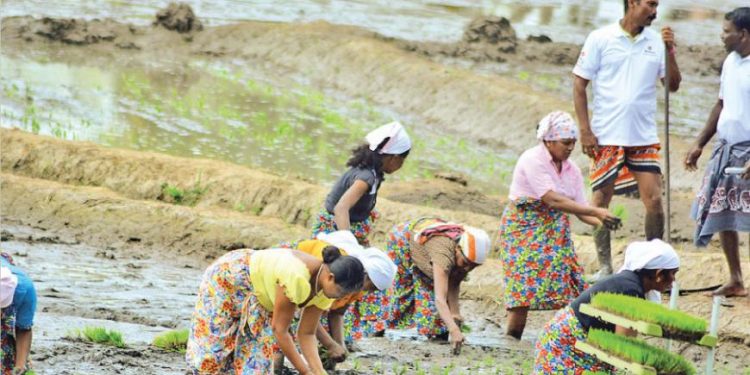By P.K.Balachandran/Daily Express
Colombo, July 12: The Ranil Wickremesinghe government is currently on the way to changing the law to give title deeds to peasants cultivating State Lands with permits.
The State Land (Special Provisions) Bill was tabled in parliament on June 28 but is yet to be taken up for discussion because of cases in the Supreme Court challenging it.
If the law is passed, a title deed will enable the holder to sell the land, which he was not allowed to do under the “permit system”. The new system will allow purchase of land. With a title deed, land can be pledged as a collateral for bank loans. Proceeds from a land sale can be used for another economic venture. Persons who can use land to enhance its productivity will now be able to buy land and invest in agriculture. Non-plantation agriculture, which is now starved of investment from the corporate sector, will get such investments.
Making land tradable is a progressive idea provided the masses and opinion makers are taken into confidence and manifest steps are taken to ensure that foreigners and foreign entities are not allowed to buy land outright.
However, in the popular imagination, possession of land, however small it might be, gives a sense of security and prevents people from sliding into abject poverty. Past Lankan regimes, which distributed land to the landless, are praised for this, to this day.
But what is ignored in the high sounding ideological and nationalistic rhetoric is that small holdings have not prevented the rural areas from being the poorest in the country.
42.4% of all holdings are less than 0.4 hectares, and 82% are less than 1 ha. The per capita arable land area is a minuscule 0.15 ha. At any rate, of the total land area of 6.55 million hectares, only about 50% is arable.
82.3% of the land in the island is currently controlled by the State. Much of it is given out to permit holders, though under restrictive conditions. 27% of the peasants are landless.
The smallness of the holdings and lack of investment have debilitated the agricultural sector. Despite that, the agriculture sector employs nearly 33% of the national labor force.
Economists point out that despite expansion of the cultivated area, introduction of improved technology, free extension advice, guaranteed price schemes and government subsidies for such inputs as fertilizer and credit, productivity is low. They point to Japan and Thailand where productivity shot up after land was freed from feudal control.
Over 28.7% of the Lankan labor force is involved in agriculture, and yet, productivity is low, contributing only 8% to the GDP. Among SAARC countries, the contribution of agriculture to the GDP is the lowest in Sri Lanka.
Low productivity arising from uneconomic small holdings is a cause of poverty. The rural sector accounts for about four-fifths of aggregate poverty in Sri Lanka.
Subsistence Mindset
Economists say that the size of the operational holdings determines not only the level of incomes but also the land management practices. Small farmers have a “subsistence mindset.” And small farmers are the majority.
“Instead of attempting to increase productivity by better application of technology or crop diversification, farmers seem to maximize household income by engaging in non-farm economic activities,” says Dhanawardana Gamage in his paper: “Little Space for Maneuvering: Agrarian Structure, Land Tenure Regimes and Agrarian Development in Sri Lanka.”
Income transfers from many different sources such government subsidies, remittances by family member employed abroad, and salaries from employment in the armed forces, enable small farmers to stick to their land and resort to distress sales. But they do not ensure that the extra income is ploughed into agriculture, Gamage points out.
The tenure system, including sharecropping and renting, have their flaws. These have to be rationalized to get the maximum out of the land under the plough. Laws of inheritance have to be changed so that brothers get a share of the land.
Land administration and management are subject to a plethora of laws, 39 of them, in fact. And agricultural matters come under the jurisdiction of several different departments and ministries.
A major drawback has been the absence of robust data. Reliable data will enable realistic planning. The US is to help Sri Lanka streamline land documentation through the Millennium Challenge Corporation fund which totals US$ 480 million.





























































